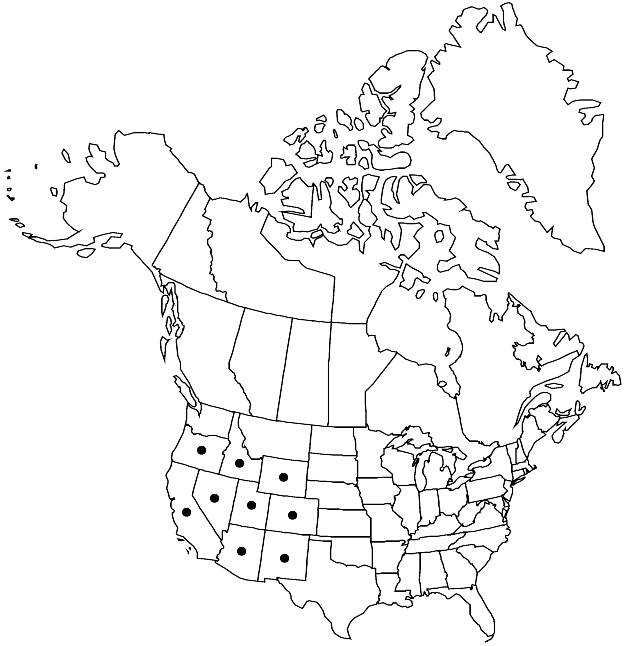Streptanthus cordatus
in J. Torrey and A. Gray, Fl. N. Amer. 1: 77. 1838.
Perennials; (caudex simple or few-branched); (glaucous), usually glabrous, (petioles of basal leaves pubescent, sometimes sepals). Stems unbranched or branched, (1–)3–9(–11) dm. Basal leaves rosulate; petiolate (petioles broadly winged, setose-ciliate); blade usually spatulate to obovate, rarely narrowly oblanceolate, 1.5–8(–11) cm, margins dentate (at least distally). Cauline leaves: blade broadly oblong to ovate, suborbicular, or lanceolate, 2–9 cm × 7–45(–60) mm, (smaller distally), base auriculate to amplexicaul, margins entire or toothed, (apex rounded, obtuse, or acuminate to acute). Racemes ebracteate, (lax). Fruiting pedicels divaricate-ascending, (straight), 3–11(–14) mm. Flowers: calyx campanulate; sepals greenish brown to purple, (broadly oblong), 5–12 mm, (lateral pair subsaccate basally), not keeled, (glabrous or subapically bristly); petals purple to brownish, (claw purplish), 9–15 mm, blade 2–6 × 0.7–1 mm, (recurved or not), margins not crisped, claw 7–10 mm, wider than blade; stamens in 3 unequal pairs; filaments (distinct): abaxial pair 5–7 mm, lateral pair 4–5 mm, adaxial pair 7.5–10 mm; anthers (all) fertile, 2.5–5 mm; gynophore 0.5–1.5 mm. Fruits ascending to divaricate-ascending, smooth, straight, flattened, 5–10.5(–14.5) cm × (2.5–)3–6(–7) mm; valves each with prominent midvein; replum straight; ovules 20–38(–46) per ovary; style 0.2–3 mm; stigma subentire to strongly 2-lobed. Seeds broadly oblong to suborbicular, 2.5–5 × 2.2–5 mm; wing 0.1–0.9 mm wide, continuous.
Distribution

w United States.
Discussion
Varieties 2 (2 in the flora).
Streptanthus cordatus is the most widespread species in the genus. It is highly variable in the shape and size of basal and cauline leaves, flower size, pedicel length, fruit length and width, style length, stigma lobing, seed shape and size, and width of the seed wing. The variation is continuous in almost every character, especially fruit width. R. E. Buck et al. (1993) indicated that in var. cordatus the fruits are more than 5 mm wide and in the Californian var. duranii they are less than 3 mm wide. One sporadically finds throughout the range of var. cordatus plants with mature fruits 2.5–3 mm wide. Such narrow-fruited forms are found in central Nevada (Beatley 6037, DS), Oregon (Howell 28719, CAS), Utah (Goodman 1877, MO), and Wyoming (Rollins & Muñoz 2876, GH).
Selected References
None.
Key
| 1 | Basal leaf blades obovate to spatulate, apices obtuse or rounded; cauline leaf blades broadly oblong to ovate or suborbicular, apices rounded to obtuse. | Streptanthus cordatus var. cordatus |
| 1 | Basal leaf blades narrowly oblanceolate, apices acuminate; cauline leaf blades lanH:ceolate, apices acuminate or acute. | Streptanthus cordatus var. piutensis |